Do you ever wonder why beer drinking seems to be more than just enjoying a chilled pint? Did you know that beer-drinking has been embedded in our social fabric and culture for centuries, going as far back as ancient civilizations? This blog post will peel back the frothy layers of beer, delving into its deep-rooted ties with various aspects of society and culture from different angles.
Ready to take a sip of knowledge on this intriguing topic? Dive right in!
Key Takeaways
- Beer drinking has deep – rooted social and cultural significance across different societies.
- It serves as a symbol of unity, tradition, and celebration in various cultures worldwide.
- Pubs, bars, and breweries play a vital role as gathering places where friendships are formed and memories are made.
- The portrayal of beer in media shapes our perception of alcohol as a casual and social drink.
- Different cultures have unique practices and traditions related to beer consumption.
- Globalization has both highlighted the diversity of drinking cultures and spread certain practices worldwide.
- Beer – drinking provides opportunities for socializing, bonding with others, and fostering meaningful relationships.
The Social and Cultural Roles of Beer Drinking
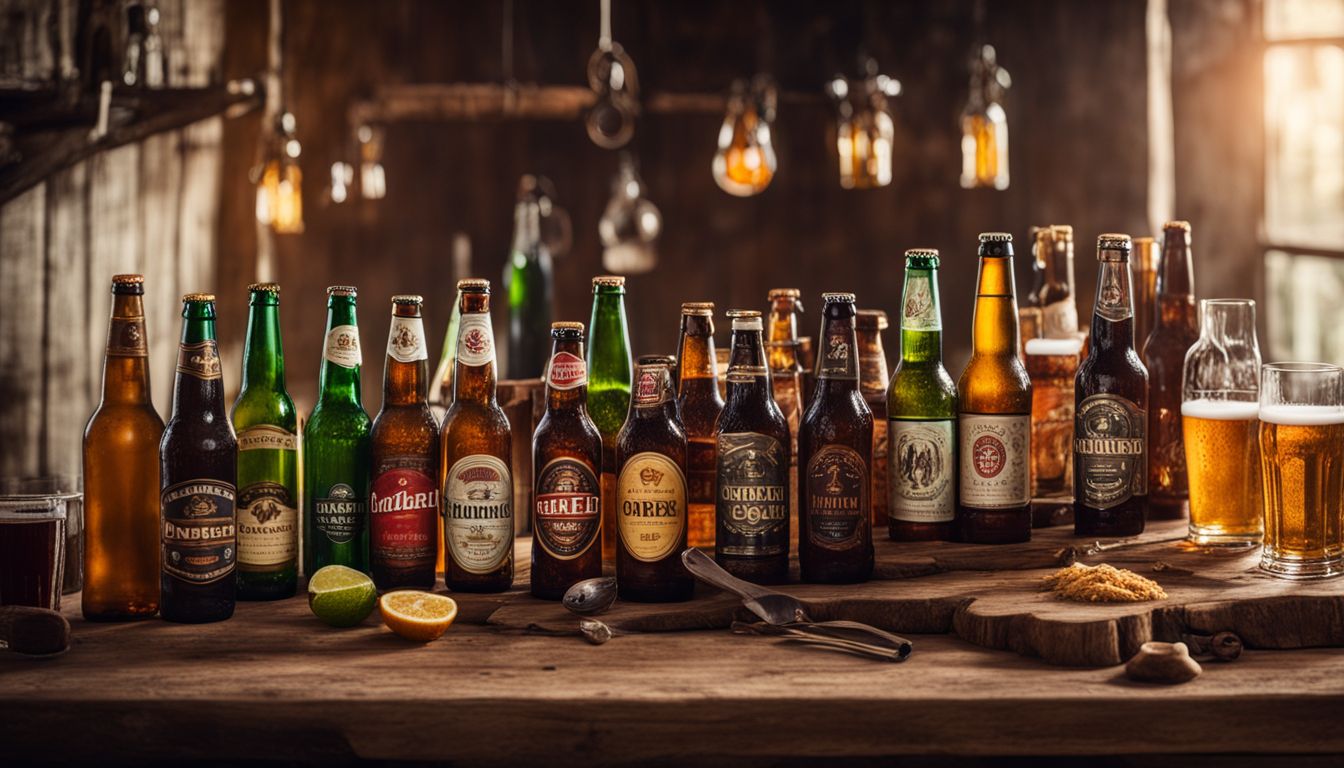
Beer drinking holds significant symbolic roles in various cultures and societies, serving as a means of socializing, establishing rituals, and maintaining historical traditions.
Symbolic roles
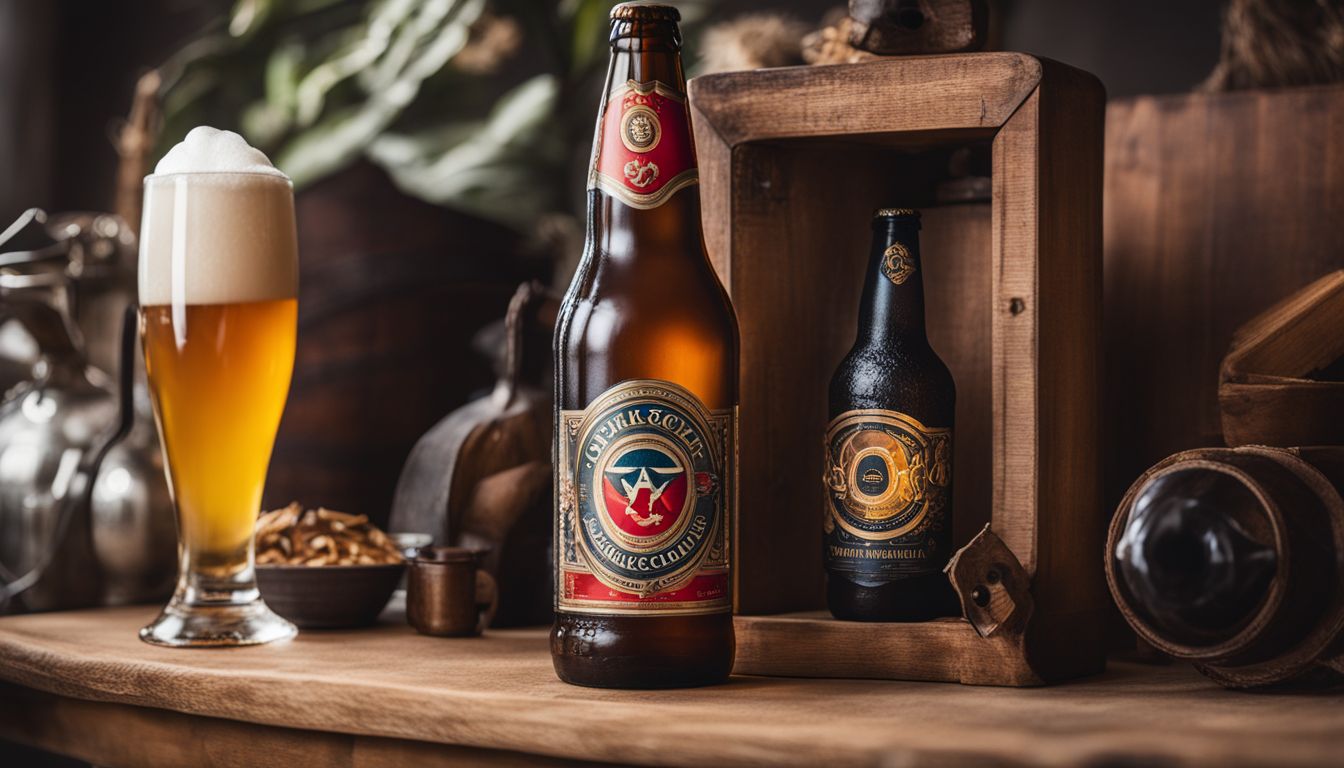
Beer holds deep meanings in many places. In some cultures, this drink stands for more than just fun times. It is a sign of your place in the group. For example, in some native tribes, beer is tied to your rank in the society.
At big events or parties, who gets to have a sip first can tell you a lot about their importance to that group. Beer also shows up during key life moments – such as weddings and birth feasts where it’s used to toast happy times.
It’s not always about joy though; beer also helps people deal with hard times and loss at funerals or remembrance ceremonies.
Beer-drinking establishments and ritual sites
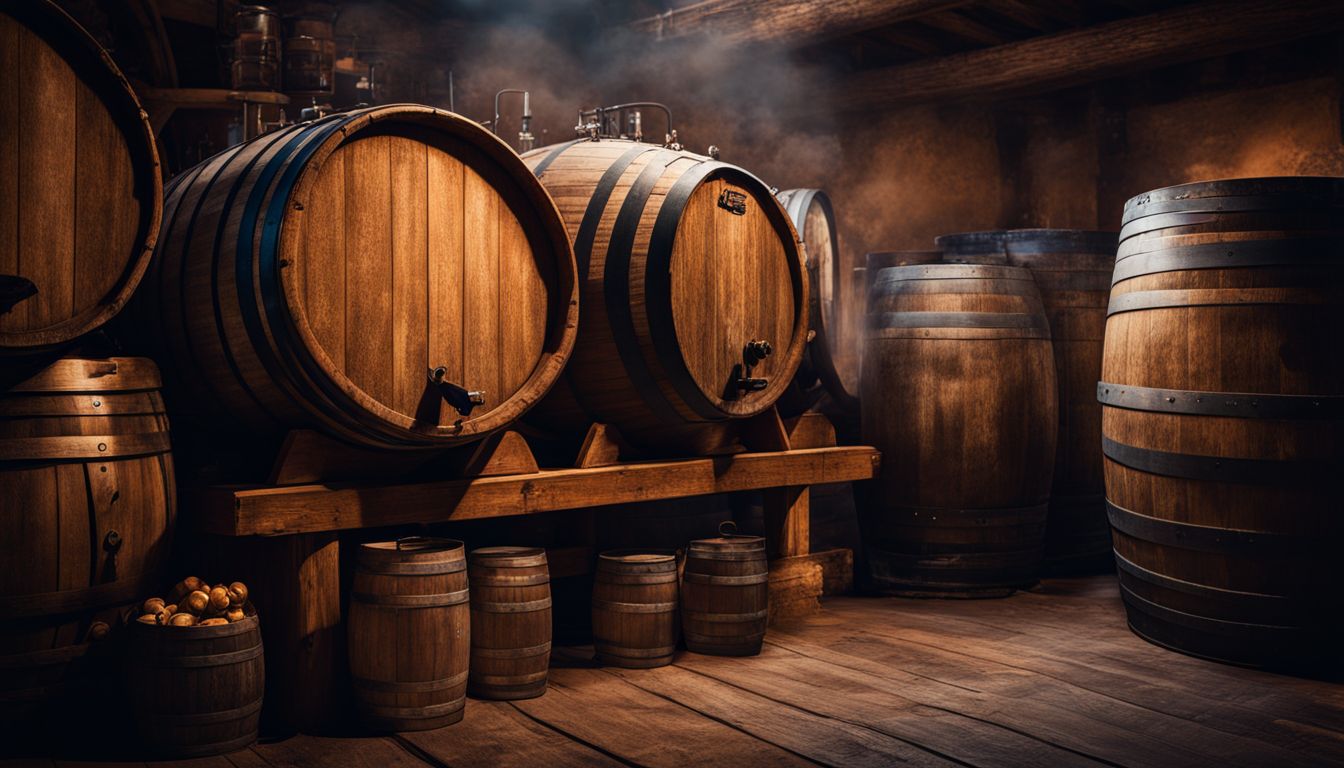
Beer-drinking establishments and ritual sites hold a special place in the social and cultural fabric of society. Pubs, bars, and breweries serve as gathering places where people come together to enjoy a pint of beer and engage in conversation.
These venues provide a sense of community and camaraderie, where friendships are formed and memories are made. In many cultures, beer-drinking is accompanied by rituals or traditions that give it a deeper meaning.
Whether it’s toasting to celebrate an occasion or offering beer as part of ceremonial activities, these rituals add significance to the act of drinking beer. From ancient taverns to modern craft breweries, these establishments play an important role in shaping our social interactions and fostering connections among individuals who share a love for beer.
Beer-drinking as a social activity
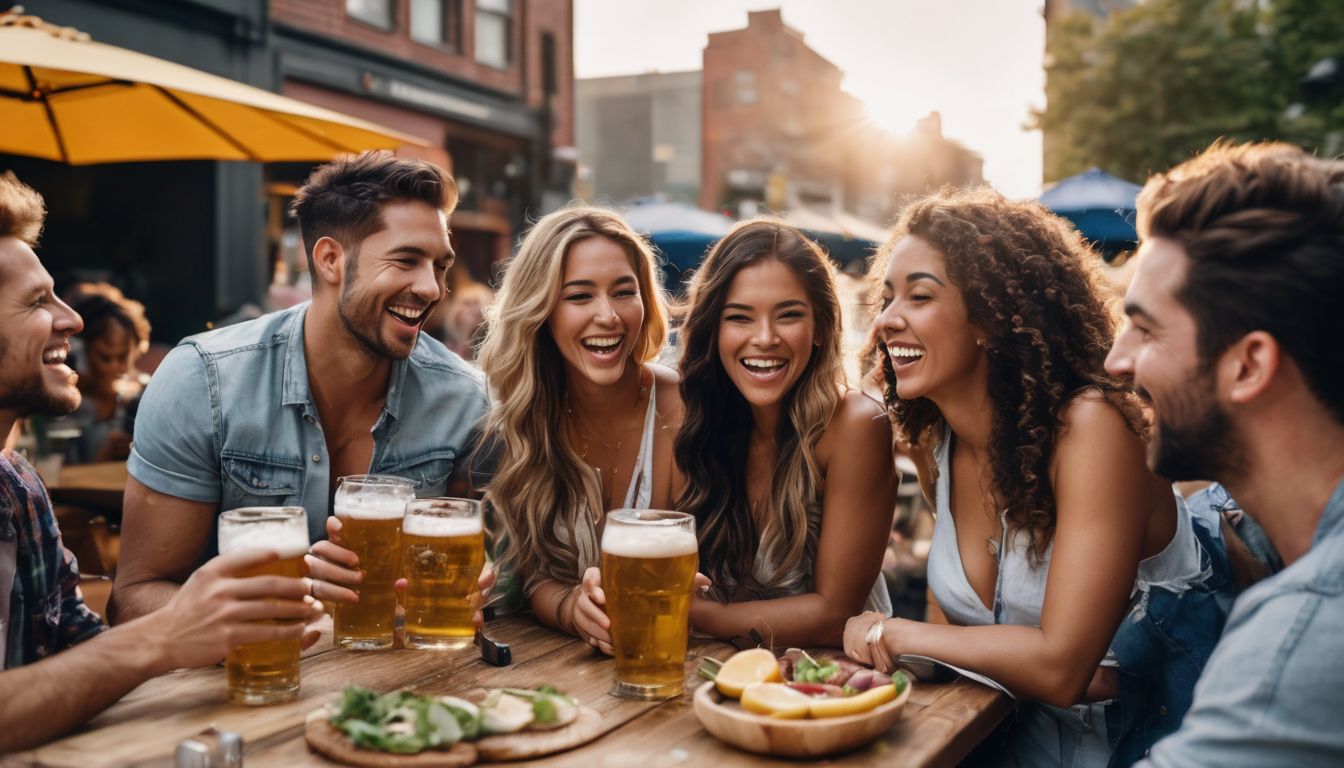
Beer-drinking is not just about sipping your favorite brew; it’s also a social activity that brings people together. Whether you’re at a bar, a backyard barbecue, or even just hanging out with friends at home, cracking open a cold one creates an atmosphere of camaraderie and relaxation.
It’s a chance to unwind, chat, and bond over shared experiences. In many cultures around the world, beer has long been associated with celebrations and special occasions. From traditional beer festivals to tasting events and brewery tours, there are plenty of opportunities for beer enthusiasts to come together and enjoy their passion.
So next time you raise your glass, remember that beer isn’t just about the drink itself – it’s about the connections we make while enjoying it.
Beer’s historical significance in modern western culture
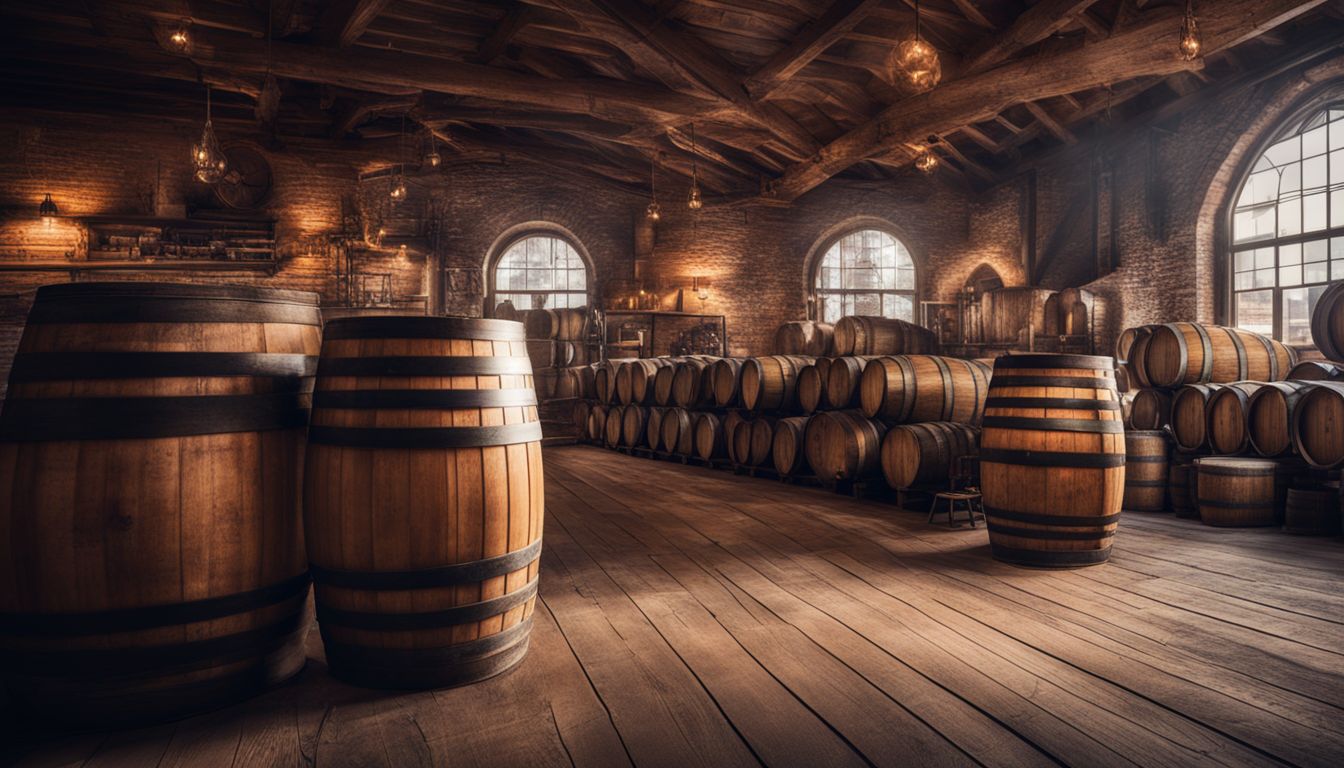
Beer has a long and important history in modern western culture. It has been seen as patriotic, especially after the English civil war in the 17th century. In fact, beer played a crucial role in the development of early civilizations and even today, it continues to be an integral part of our society.
Beer is not just a beverage; it holds symbolic meanings and is often associated with celebration and social gatherings. Throughout history, beer has been considered safer to drink than water due to its fermentation process, making it an essential dietary staple for many people.
Its historical significance cannot be overstated when looking at the cultural landscape of modern western society.
The Influence of Beer in Media and Pop Culture
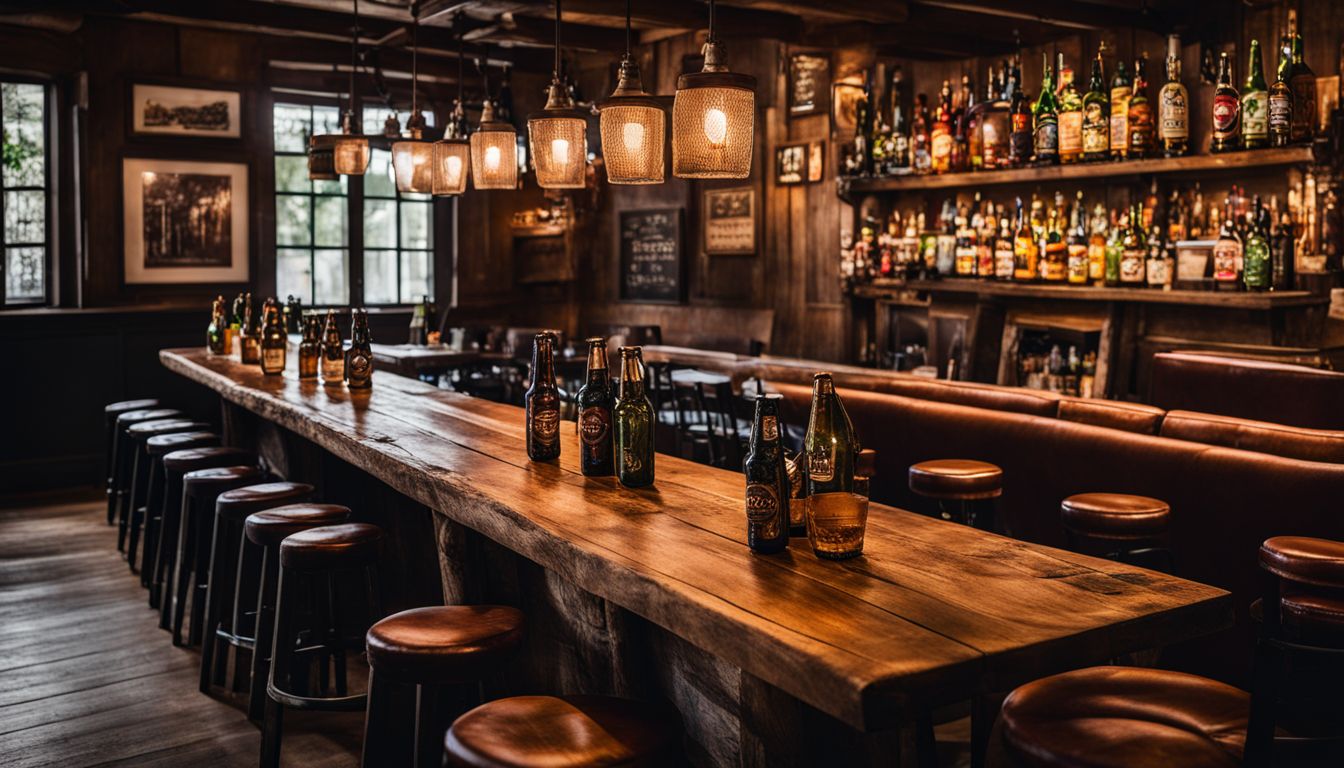
Beer is frequently used to represent alcohol in media and pop culture, with its portrayal in movies, TV shows, and advertisements shaping our perception of alcohol. Interested to know more? Keep reading!
Why beer is frequently used to represent alcohol

Beer is often chosen to represent alcohol because it is one of the most widely consumed alcoholic beverages. It has become a symbol of drinking culture and socializing in many societies around the world.
In movies, TV shows, and advertisements, beer is often portrayed as a common choice for people when they want to have a drink. This representation has an impact on how we perceive alcohol, associating it with relaxation, fun, and socializing.
The use of beer as a symbol also reflects its historical significance in modern western culture, where it has been seen as patriotic since the 17th century.
The portrayal of beer in movies, TV shows, and advertisements
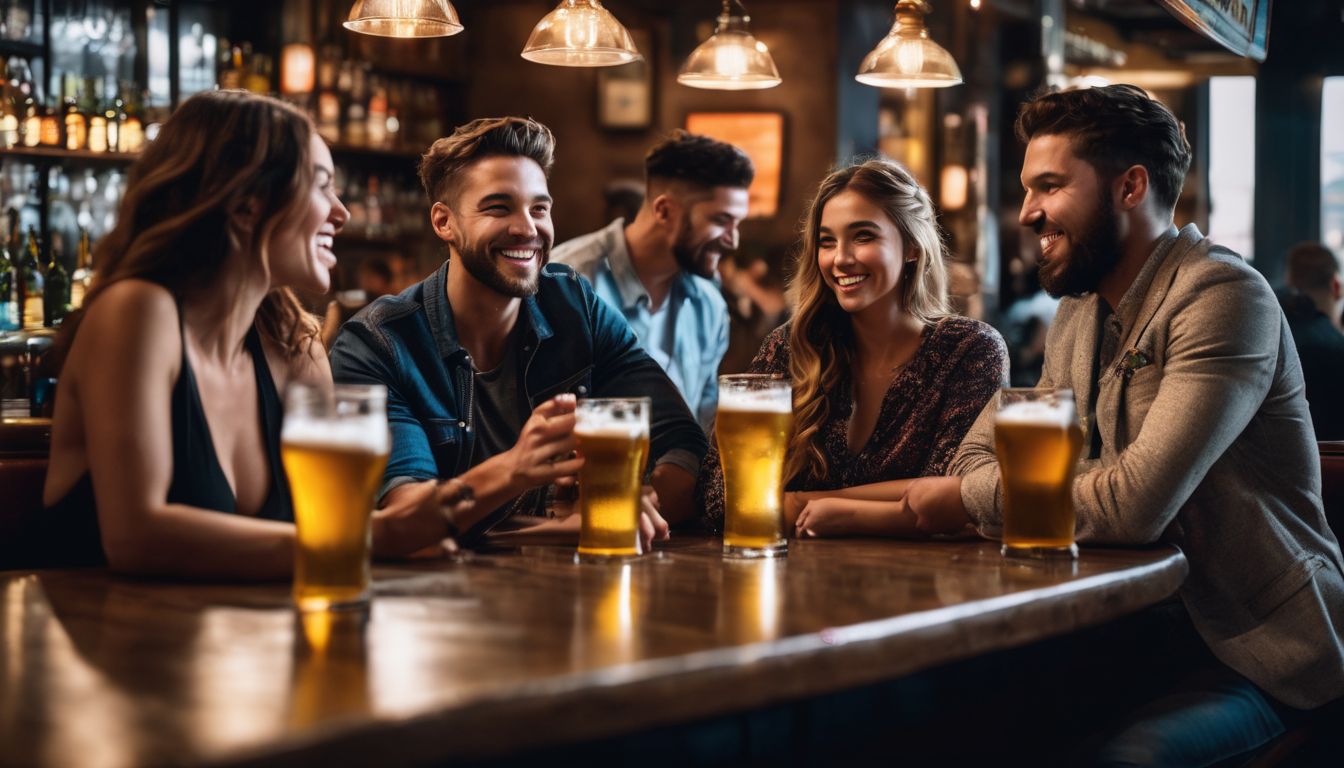
Beer is often shown in movies, TV shows, and advertisements. Here are some things to know about how beer is portrayed:
- Beer is frequently used to represent alcohol in these forms of media.
- In movies and TV shows, characters often drink beer to relax or have a good time.
- Advertisements often show people enjoying beer with friends or at parties.
- These portrayals can shape our perception of alcohol and influence our behavior.
- It’s important to remember that real – life alcohol consumption may have different consequences than what we see on screen.
- The social and cultural contexts in which alcohol is consumed can greatly influence patterns of alcohol use and misuse.
- Symbolic meanings attributed to alcohol can vary across different cultures, highlighting the cultural diversity in the perception of alcohol.
- Drinking cultures differ globally, with unique customs and traditions related to alcohol consumption.
The impact of beer representation on our perception of alcohol
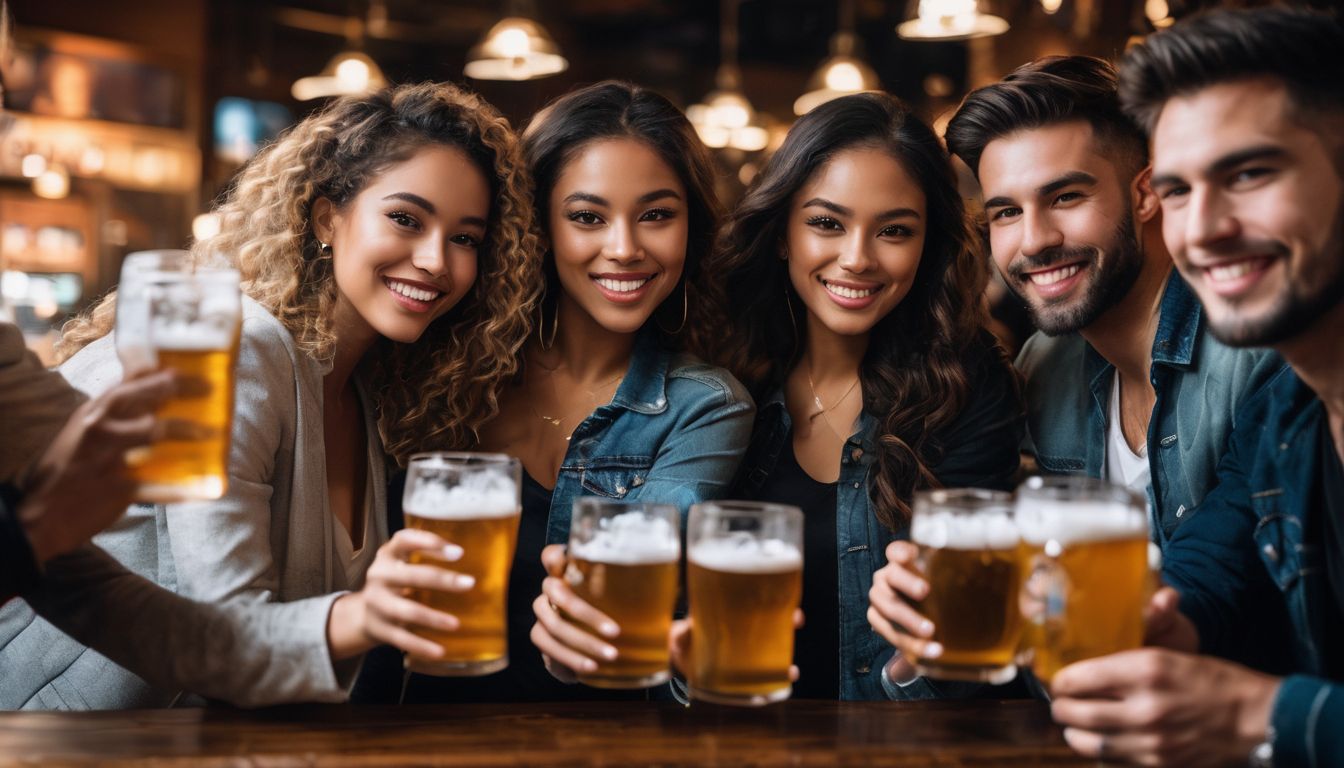
The way beer is represented in media and popular culture can shape how we view alcohol as a whole. Beer is often used as a symbol for alcohol in movies, TV shows, and advertisements because it’s widely consumed and easily recognized.
This constant portrayal of beer can influence our perception of alcohol by making it seem more casual or less harmful than other alcoholic beverages. Additionally, the association between beer and socializing in these representations can contribute to the belief that drinking beer is a normal part of social activities.
These influences can impact our personal behavior when it comes to consuming alcohol and how we perceive others who drink.
Alcohol’s Significance in Different Cultures
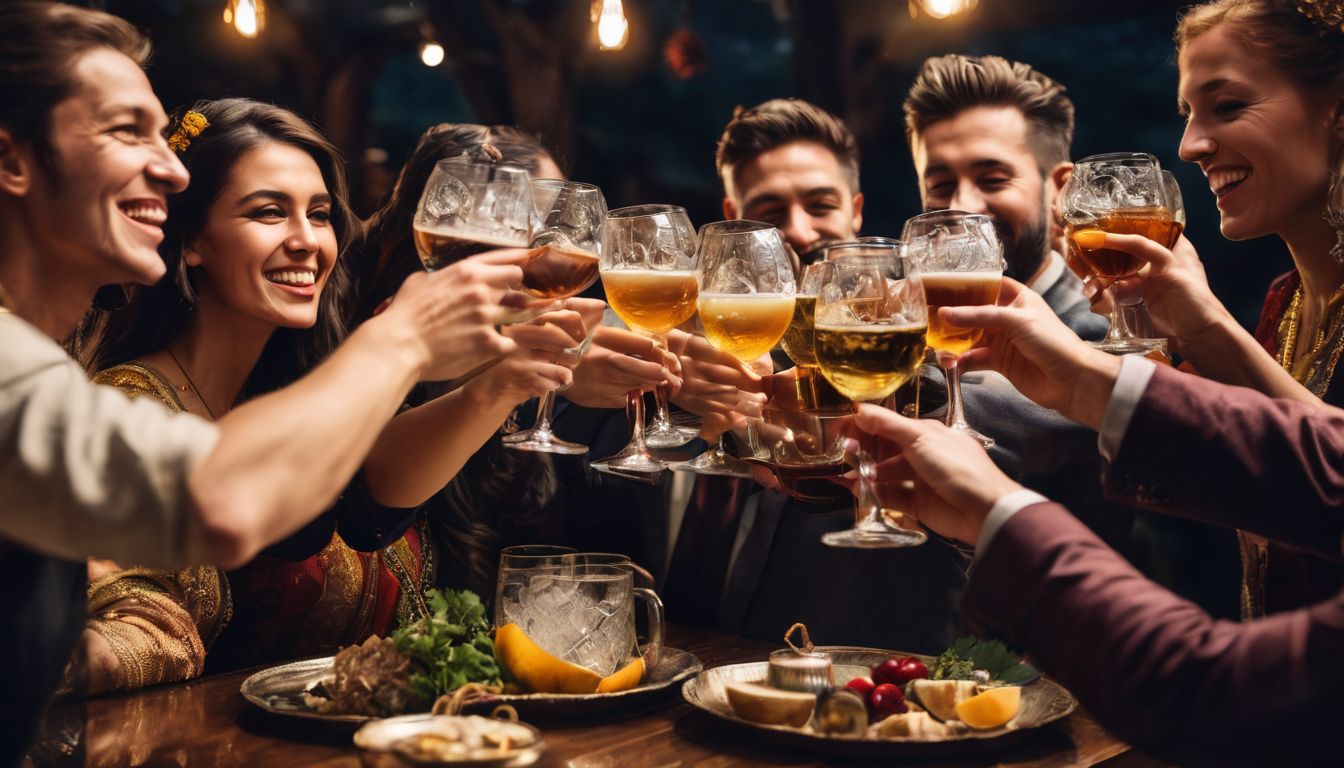
Beer holds a significant cultural importance in various societies and traditions worldwide, showcasing the diversity and globalization of drinking cultures.
Beer’s cultural significance in societies and traditions
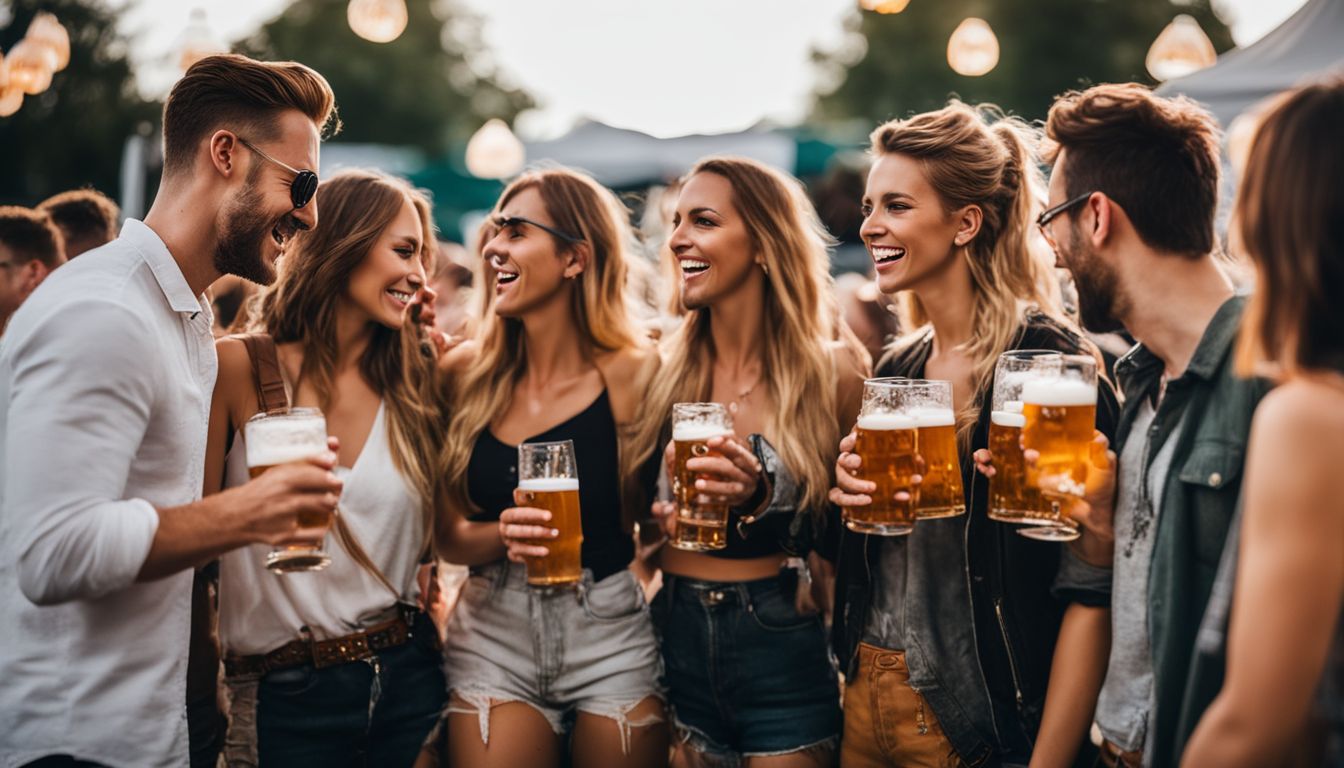
Beer holds immense cultural significance in societies and traditions around the world. Throughout history, beer has been a part of various religious ceremonies, social gatherings, and everyday life.
It is not just a beverage; it carries symbolic meanings that differ across cultures. For example, in some indigenous societies, sharing and consuming beer is seen as a way to establish social bonds and show hospitality.
In others, beer plays a role in ceremonial activities or as an essential part of festive celebrations. The diverse cultural practices and symbolism surrounding beer consumption highlight its importance as more than just a drink.
Globalization and the differentiation of drinking cultures
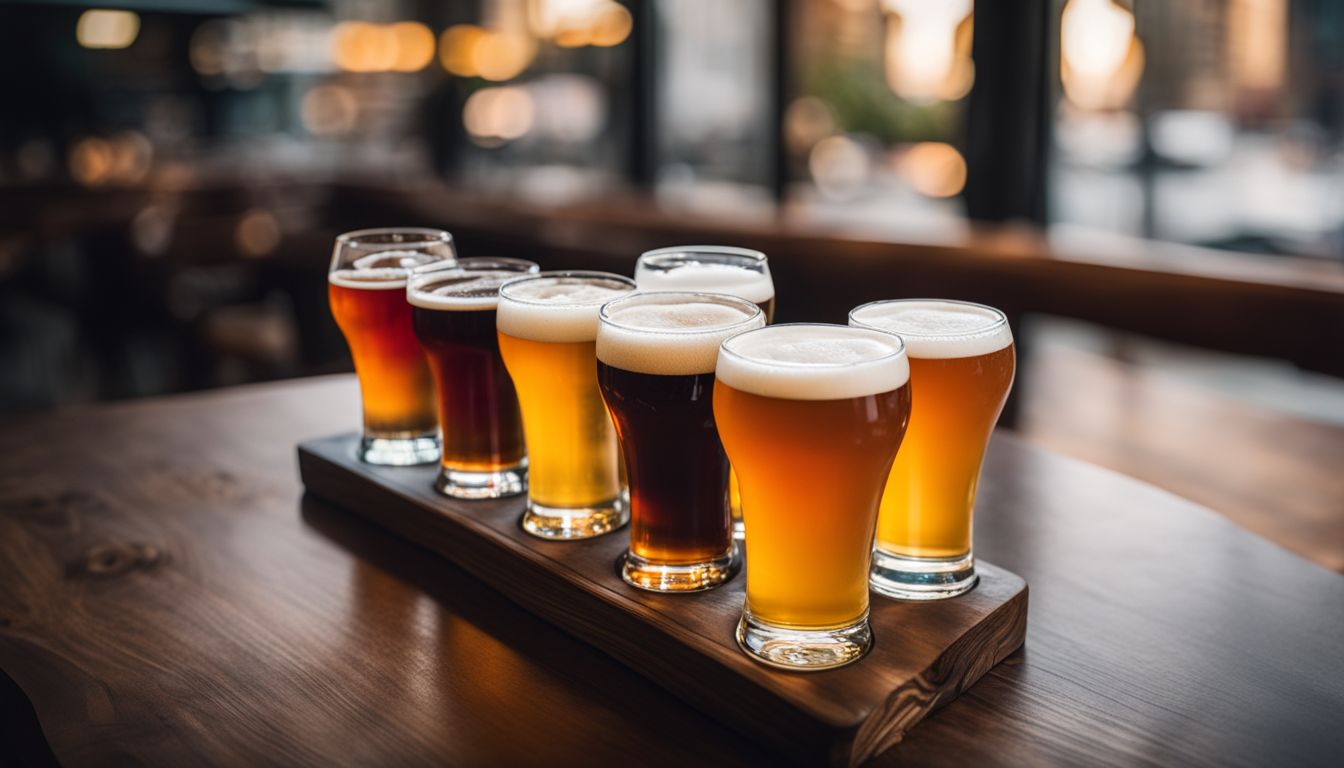
Globalization has had a big impact on the way people drink beer around the world. Different countries and cultures have their own unique drinking practices and traditions, and globalization has both highlighted these differences and also spread certain drinking practices to new places.
For example, craft beer from smaller breweries has become popular in many countries due to globalization. This has led to a greater appreciation for different types of beer and brewing techniques.
So now, when you travel or try beers from different parts of the world, you can experience the diverse flavors and styles that reflect each culture’s unique approach to brewing.
Beer as an essential part of social relations
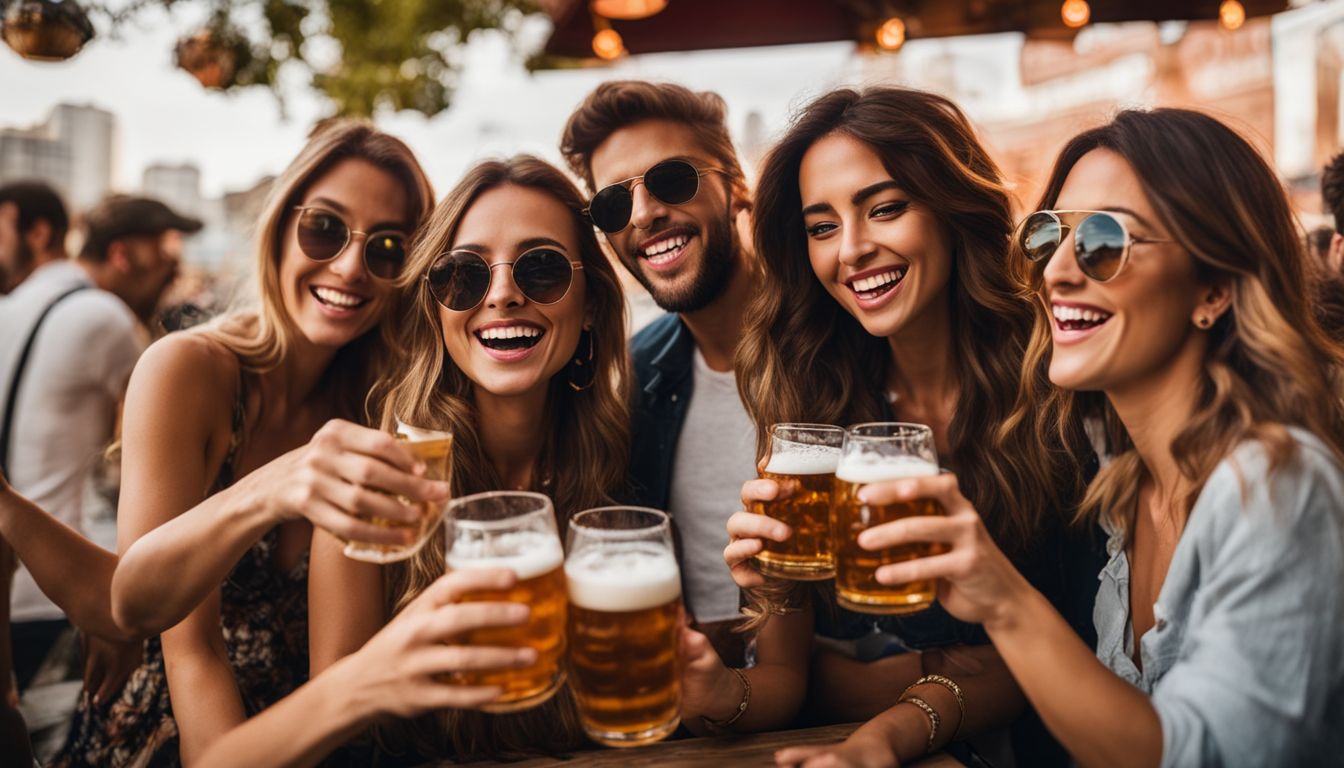
Beer is more than just a beverage; it also plays an essential role in our social interactions. Sharing a beer with friends or family members is a common way to connect and bond with others.
It brings people together, creating a sense of camaraderie and belonging. Whether it’s enjoying a pint at the local pub, attending beer festivals, or participating in beer tasting events, beer-drinking provides opportunities for socializing and forming relationships.
In many cultures, such as Oktoberfest in Germany or St. Patrick’s Day celebrations in Ireland, beer is deeply ingrained in traditions and festivities that unite communities. So next time you raise your glass, remember that sipping on a cold brew isn’t just about the taste – it’s about fostering connections and building meaningful relationships.
The Social Context of Beer-Drinking
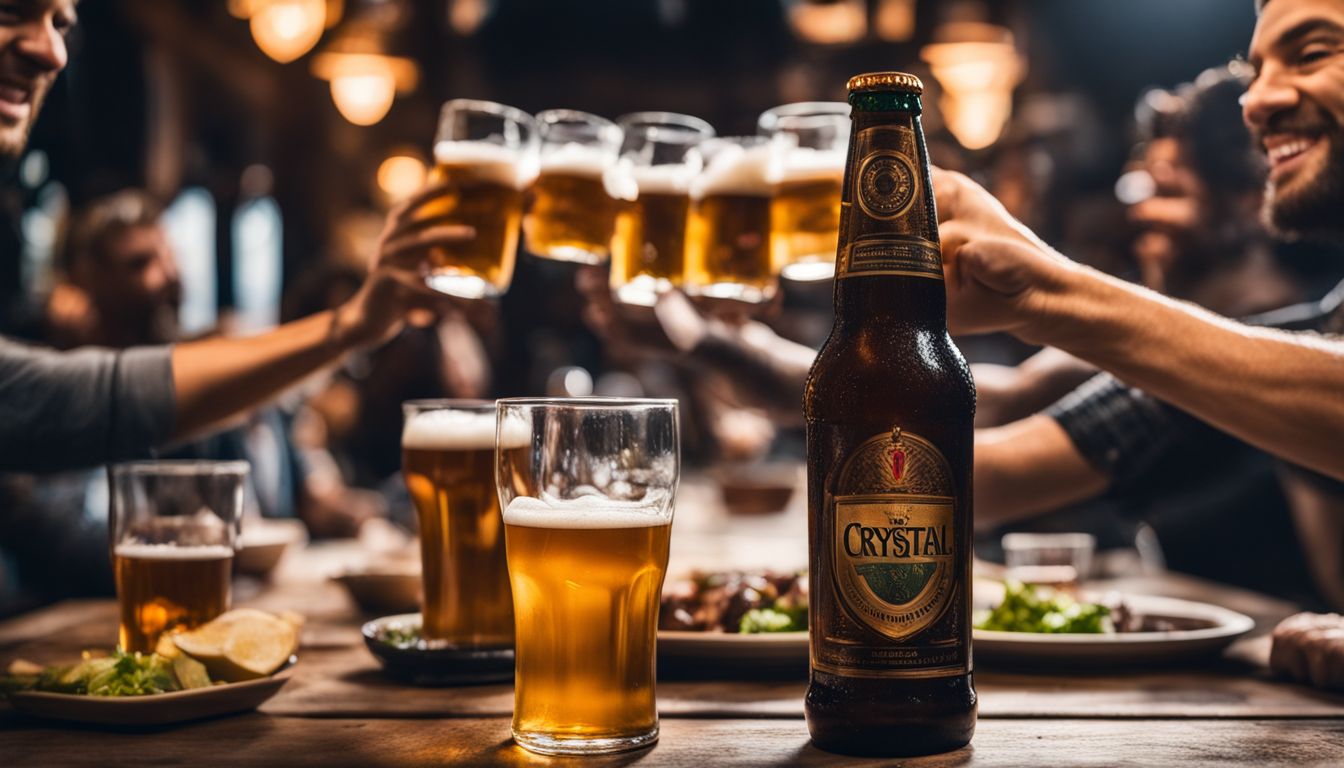
Beer-drinking in pubs provides a unique social experience, allowing individuals to engage in casual conversations and forge new connections.
The role of beer in socializing and leisure activities
Beer plays a significant role in socializing and leisure activities. It is often enjoyed with friends and family during gatherings, parties, or even casual get-togethers. Sharing a beer can help people relax and bond with each other.
In many cultures, beer is associated with hospitality and is seen as a way to welcome guests into one’s home. Pubs and bars also serve as spaces where people come together to enjoy a pint of beer while engaging in conversations or watching sports events.
Beer consumption can create a unique social experience, where individuals connect over shared enjoyment of this beverage.
The unique social experience of drinking in pubs
Drinking in pubs is more than just consuming a beverage – it’s a social experience that brings people together. In these cozy and lively establishments, friendships are forged, conversations flow freely, and laughter fills the air.
Pubs often serve as a meeting place where friends can relax and unwind after a long day or celebrate special occasions. The atmosphere is warm and welcoming, making it easy to strike up conversations with both old acquaintances and new faces.
It’s not uncommon for strangers to become fast friends over shared pints of beer. The pub culture fosters a sense of community where locals gather regularly to catch up on each other’s lives and form lasting connections.
Whether you’re playing darts, enjoying live music, or simply chatting at the bar, pubs provide an inviting setting for socializing and creating memories.
[Factual Information from Important Facts]:
– Drinking in pubs has been a longstanding tradition in British culture.
The cultural practices and symbolism surrounding beer consumption
Beer has deep cultural significance and is often associated with various rituals and traditions. In many societies, beer is not just a beverage but a symbol of hospitality, celebration, and social connection.
Different cultures have their own unique practices when it comes to beer consumption. For example, in Germany, there are beer gardens where people gather to enjoy a pint together in an outdoor setting.
In Belgium, beer tasting is seen as an art form with its own set of rituals and etiquette. Beer can also hold symbolic meanings such as representing national identity or religious beliefs.
Conclusion: The Multifaceted Social and Cultural Significance of Beer Drinking
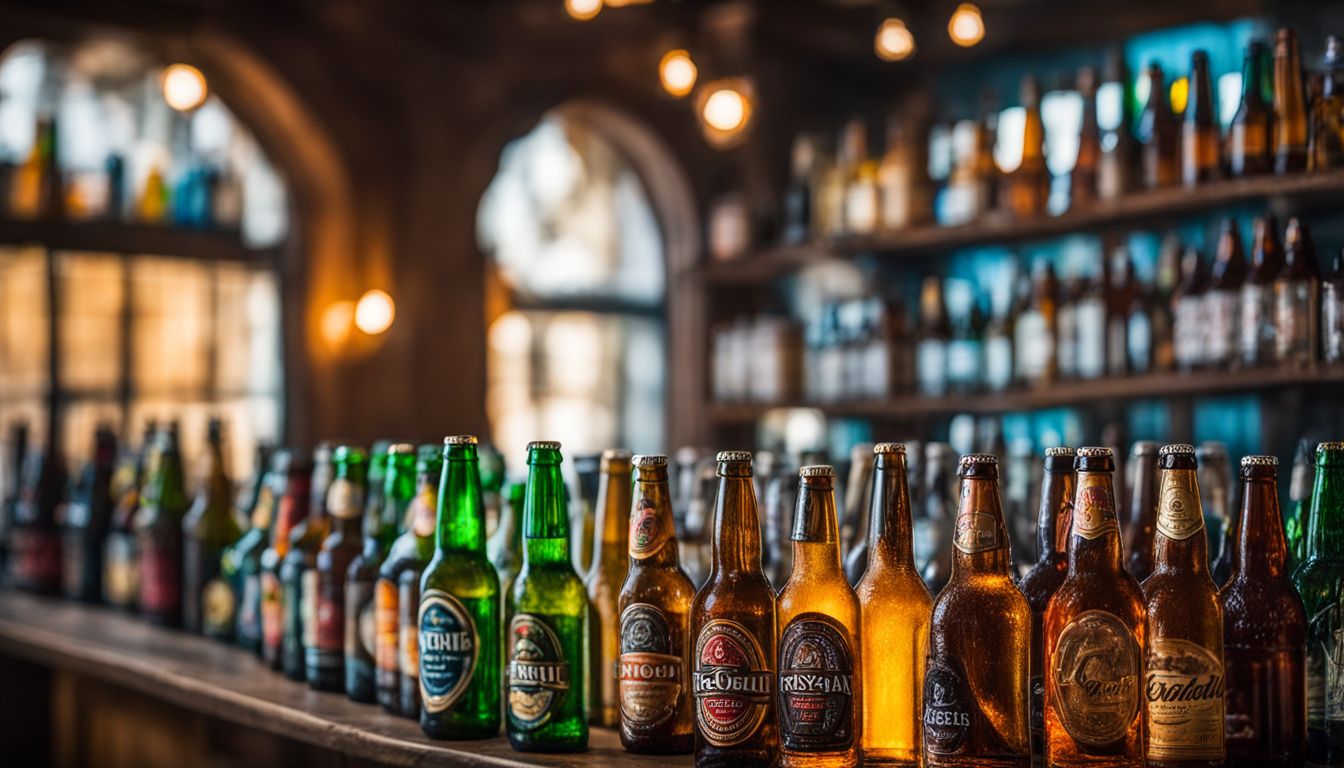
Beer drinking holds a significant place in our social and cultural lives. It symbolizes unity, tradition, and celebration across different societies. Through its portrayal in media and pop culture, beer has become influential in shaping our perception of alcohol.
The diverse social context surrounding beer-drinking brings people together, creating unique experiences that reflect our cultural practices and values.
FAQs
1. Why is beer drinking socially significant?
Beer drinking has social significance because it often brings people together, promotes conversation and bonding, and is a common element in celebrations and social gatherings.
2. Are there cultural differences in beer consumption?
Yes, there are cultural differences in beer consumption. Different countries and regions may have unique brewing traditions, drinking customs, and even specific types of beer that hold cultural importance.
3. Is moderate beer drinking considered acceptable in society?
Moderate beer drinking can be considered acceptable in many societies as long as it is done responsibly. However, the acceptability may vary depending on cultural norms and legal restrictions in different places.
4. What role does beer play in celebrations or festivals around the world?
In many cultures, beer plays a significant role during celebrations or festivals as it symbolizes joy, relaxation, and togetherness. It is often consumed alongside traditional foods or during special rituals or ceremonies tied to these events.
